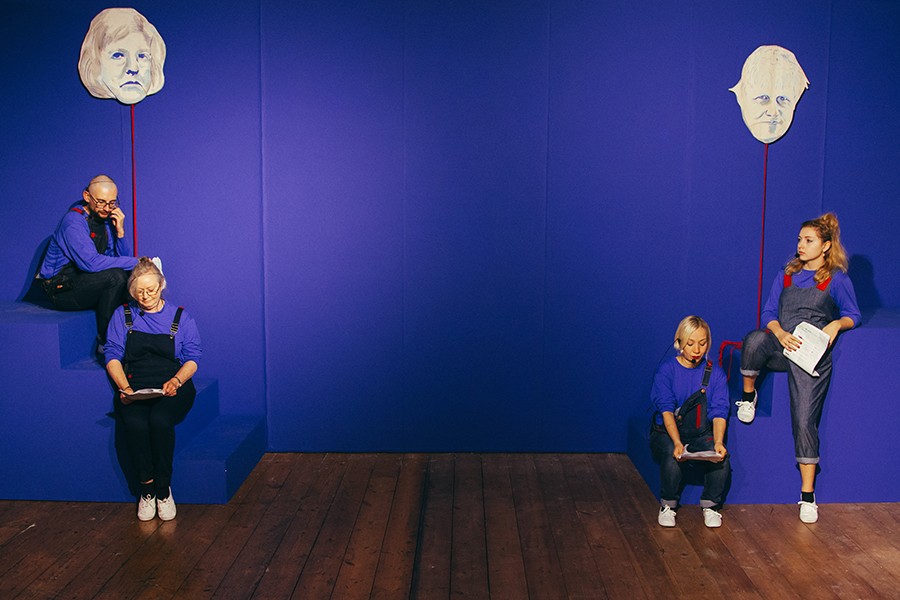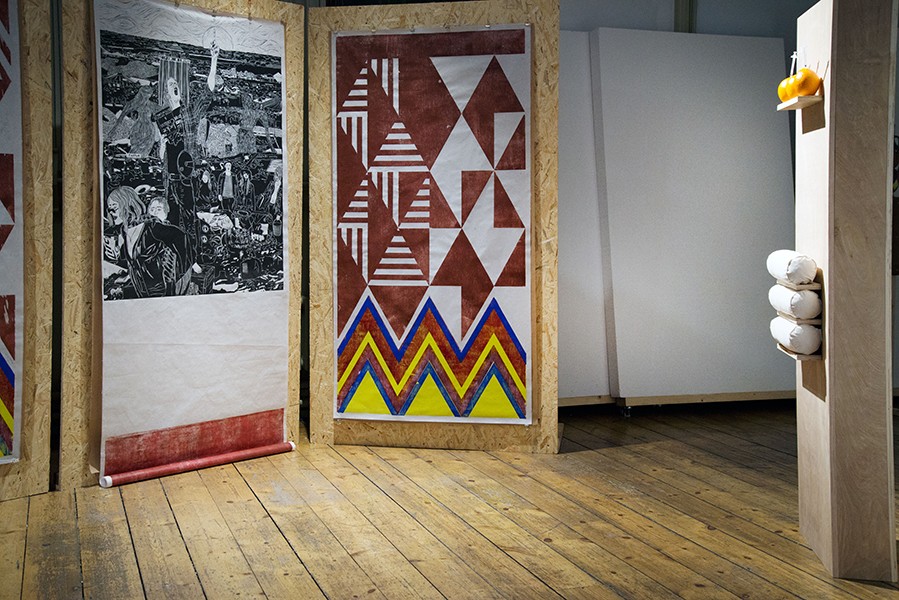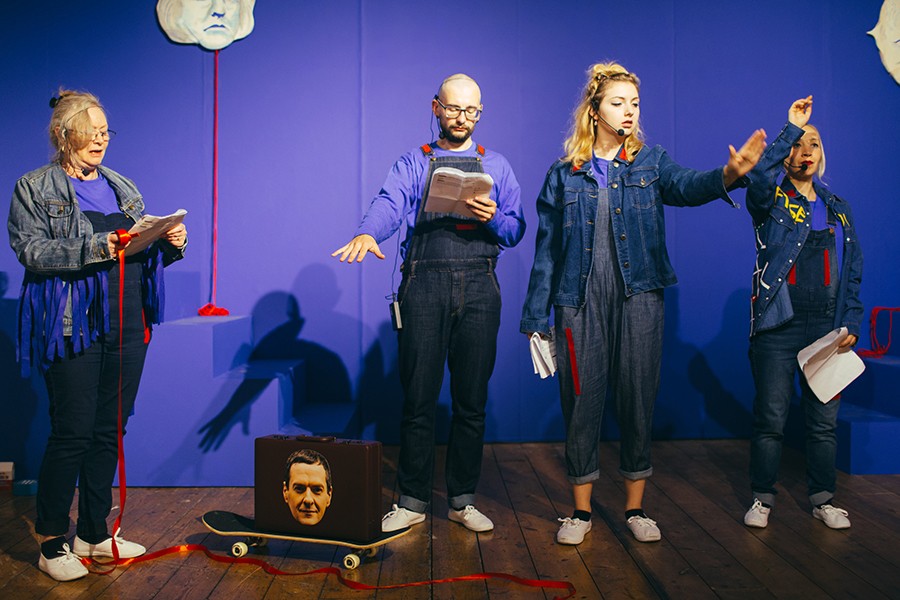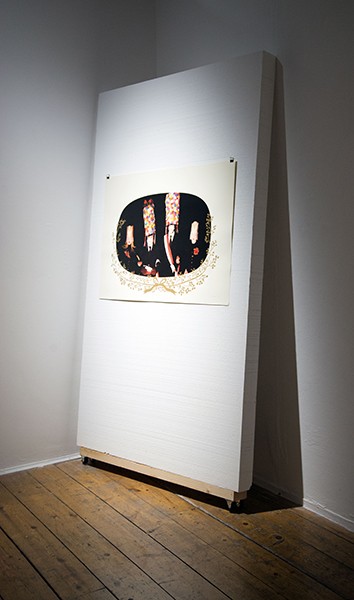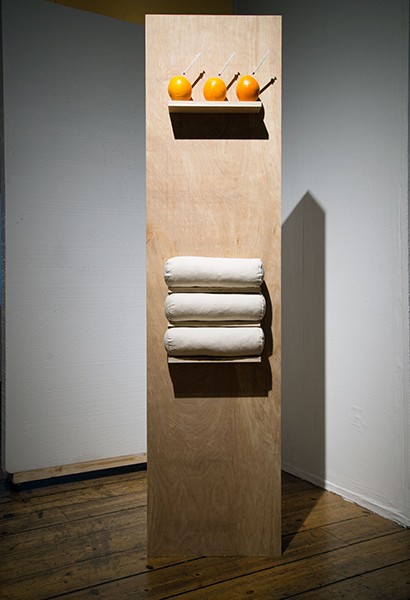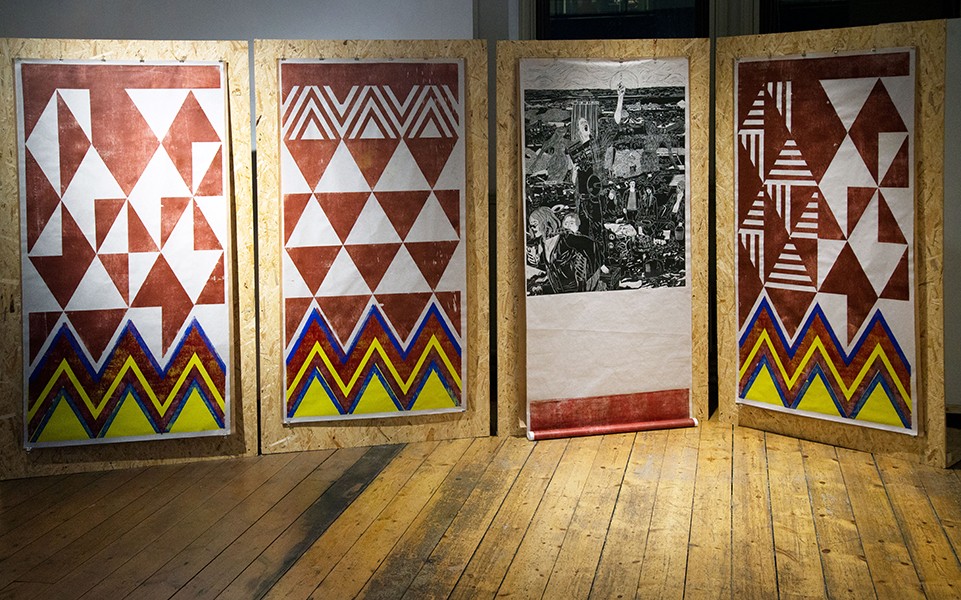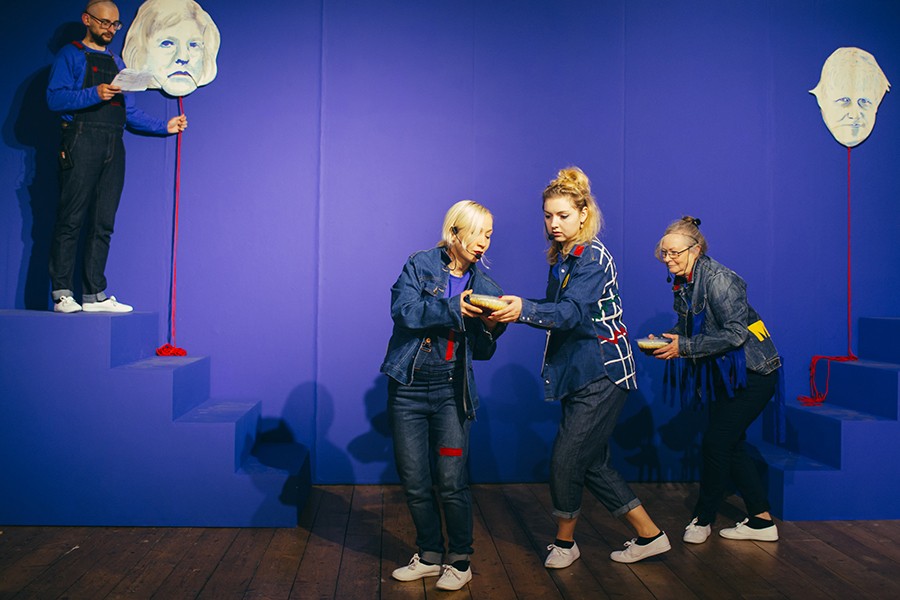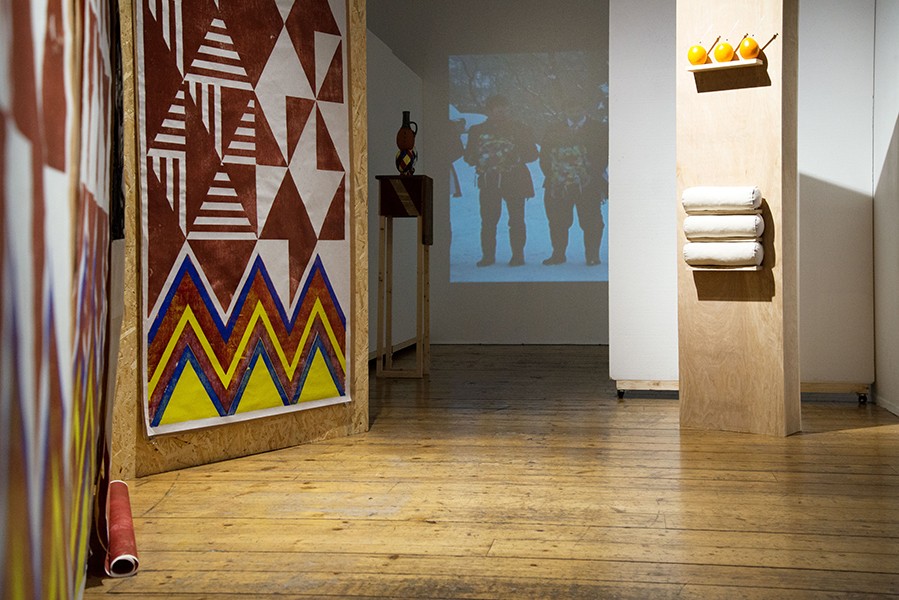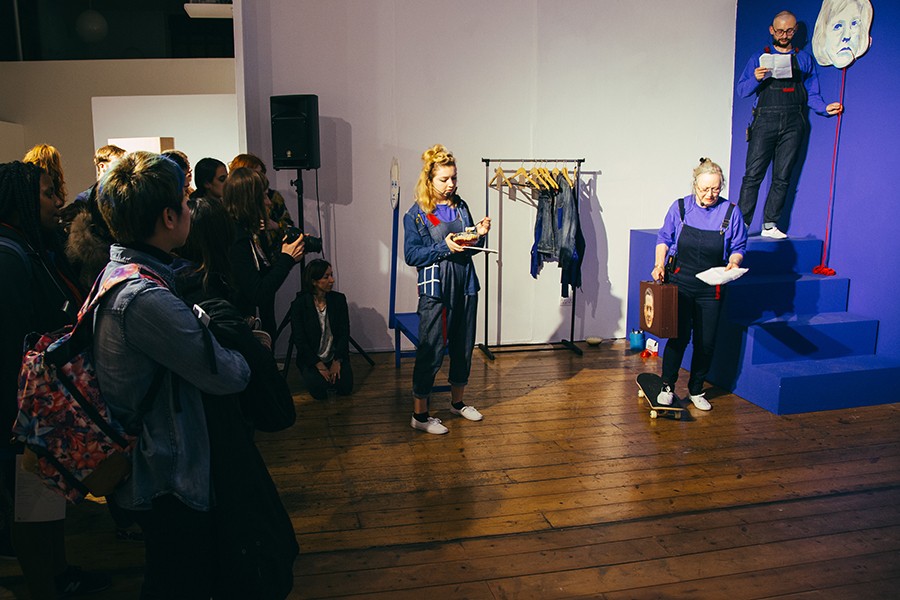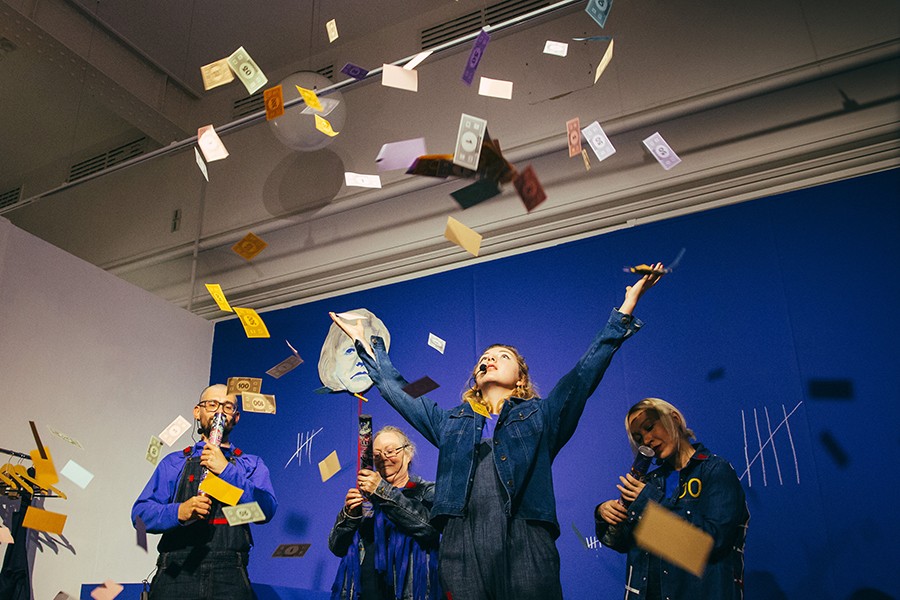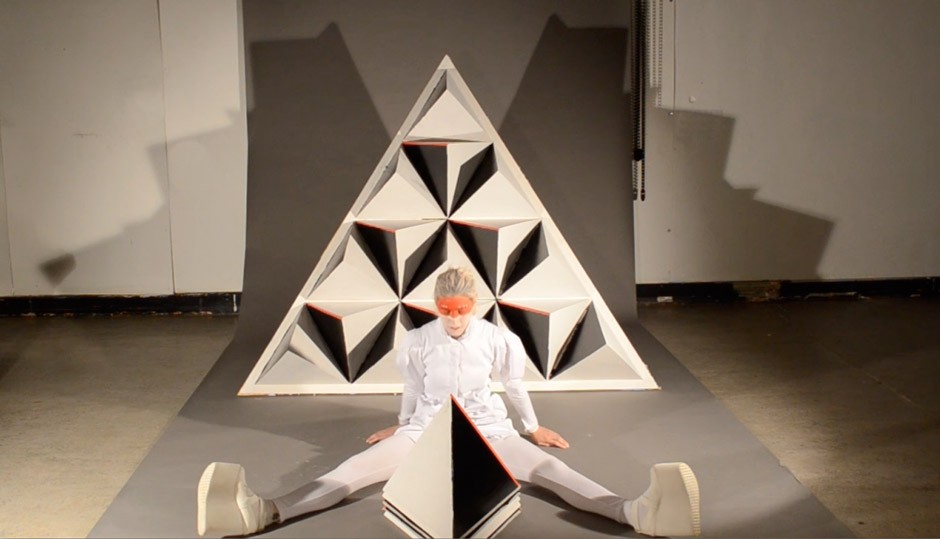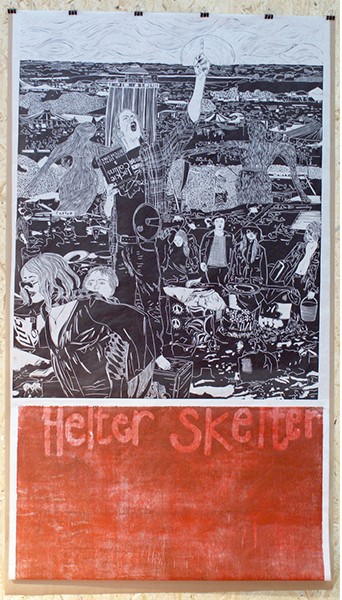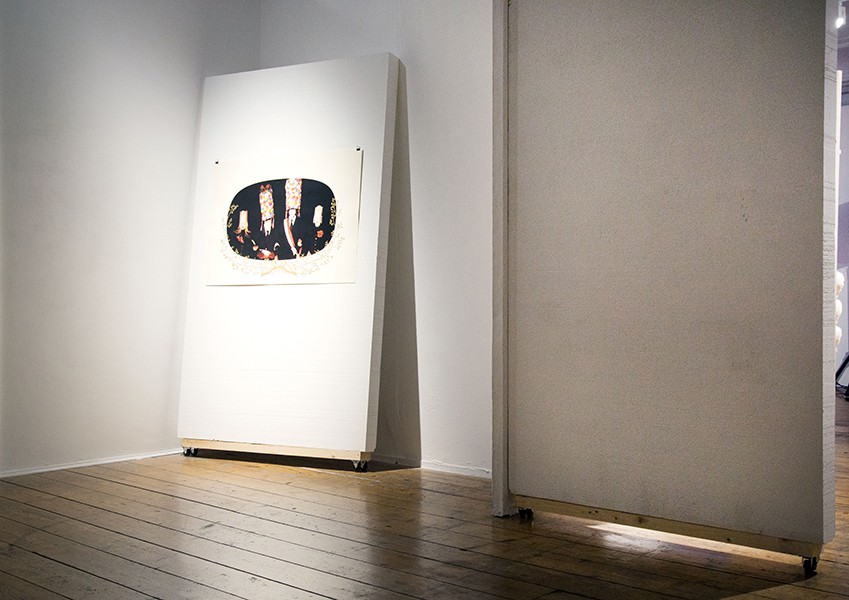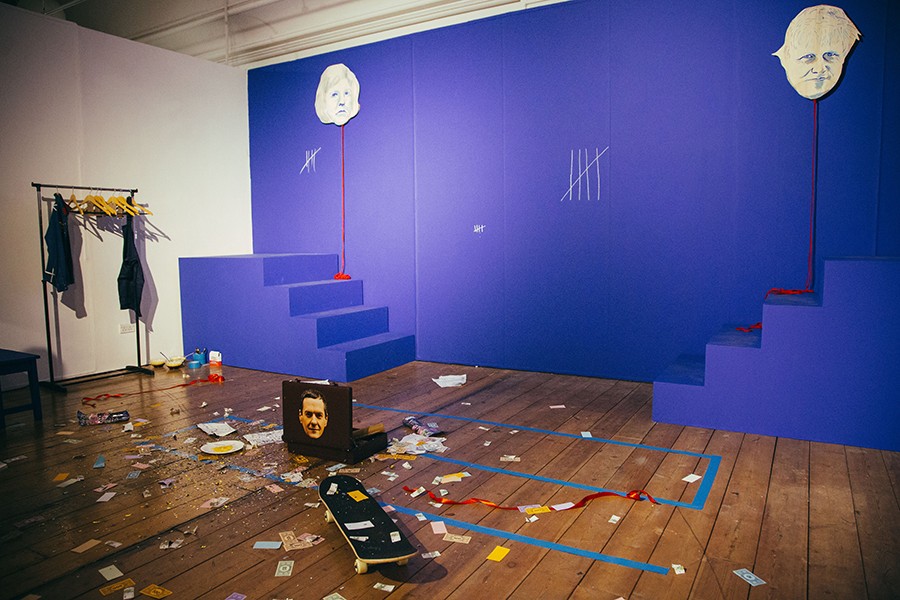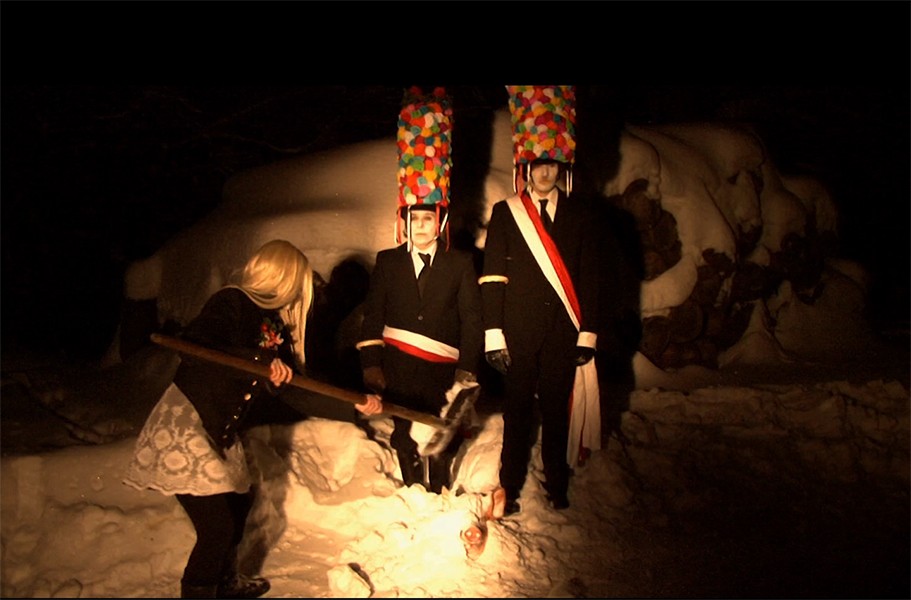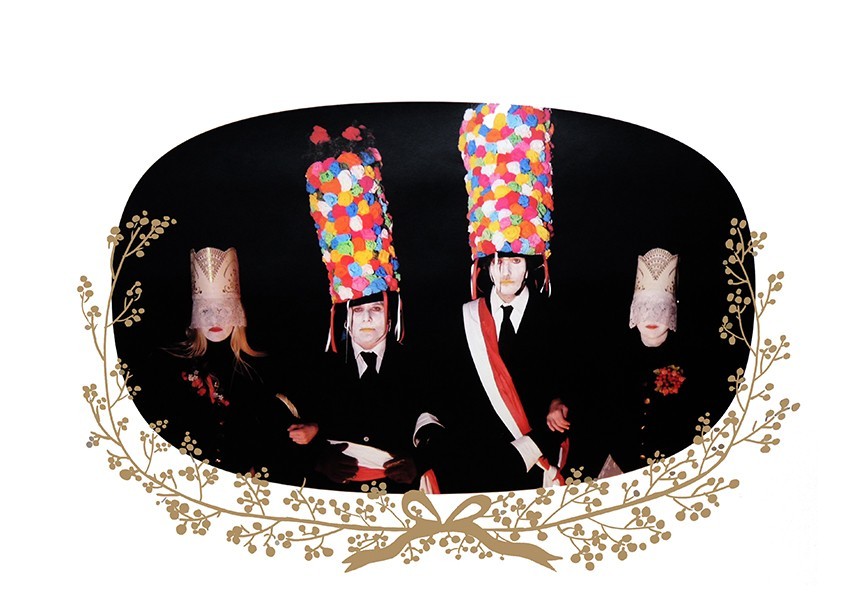Staging the Artwork 2
11th November – 15th December 2015
Tereza Buskova, Amelia Beavis-Harrison, Abi Hubbard, Ryan McClelland and Lisa Selby.
Opening Tuesday 10th November – 6 – 8pm
Performance/ Play – If You Haven’t Been Announced, Don’t Come In – Written and Directed by Amelia Beavis-Harrison – starting at 6.45pm
Curation/Props – Mona Casey
Staging the Artwork, is the second in the exhibition series, looks primarily at the artist’s exploration of theatricality within their work.
Staging the Artwork 2, includes a newly commissioned performance/play, by Amelia Beavis-Harrison. If You Haven’t Been Announced, Don’t Come In! is a re-write and contemporised narrative based on the final work of Russian poet and playwright, Vladimir Mayakovsky’, The Bathhouse. Mayakovsky’s, Bathhouse, openly ridiculed the post-Revolutionary, Socialist Party administration, using the principle of the emperor’s new clothes. Both plays criticise the problematics of bureaucratic states, with Beavis-Harrison’s version looking to recent political content, such as the current Conservative Government, and the Financial Crash.
The sculptural works of Lisa Selby are formally considerate, ordered and very controlled in terms of their narrative content. Taking out a pleasure loan, consists of fresh oranges, hypodermic needles, bolster cushions and wood. The work is a combination of construction with found and repeated objects and deliberates in composed and structured language, in order to trigger a narrative of events.
Abi Hubbard’s Ode to Protazanov, ‘associates with the constructivist style, and favours simple geometry as a system to extricate idols and figurative depictions of power. The shapes are flat planes heavily lit and theatrical, inviting the viewer to see the work as a construct.’1 Protazanov, a Russian and Soviet film-maker and screen writer, made probably the first Soviet sci-fi film, in 1924, Aelita, (Queen of Mars), a silent space adventure. His imagery, sets and costumery, provide an indelible influence for Hubbard and her work.
Ryan McClelland, work explores ‘Art as a motivating power for positive change, with the capability to create, make and fix as an assertive political act, in an age when humanity has become increasingly less independent and more reliant on technology.’2 His work investigates the use of traditional crafts, printmaking, ceramics, textiles, etc. by communes and collectives, as a force for self-sufficiency and activism.
Tereza Buskov’s, film, Masopust, reflects her belief that our traditions should not grow dusty whilst being perfectly preserved in boring museum cabinets. The work draws inspiration from the Czech festival from which it takes its name, a ritual of carne-vale, a ‘farewell to meat’. Like its Western counterpart, Masopust marks the last time that villagers can eat meat for months and focuses on the pagan roots of the villagers of Doudleby, carrying out their yearly ritual.
Staging the Artwork is a series of exhibition/ events, which explores elements such as staging, costuming, scenery, narrative, gesture, word and representation, both within the artwork and increasingly over the series duration, within the exhibition site. The exhibitions attempt to consider, re-consider, the inherent theatricality of the exhibition framework. The composition of the space and approach to curating the gallery environment is an evolving experiment, exploring the influence of stage-like strategies on the exhibition site, whilst considering mise-en-scene and scenographic principles as an underlying influence.
Staging the Artwork is accompanied by a series of commissioned texts, which draws and reflects on the writer’s own research, but has resonance for the curator and the ideas within the exhibitions.
1. Statement, Abi Hubbard/ 2. Statement, Ryan McClelland
Accompanying text – Staging as a Tool, Dr. Antigoni Pasidi, 2015

